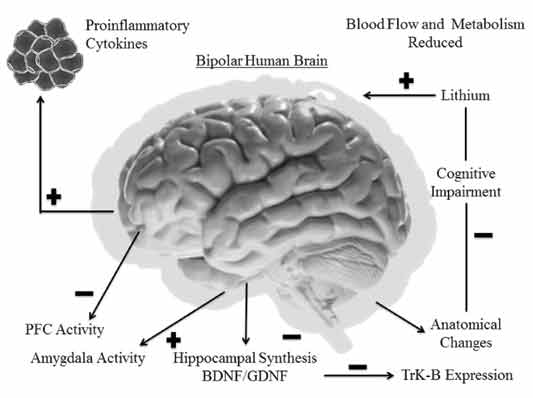Bipolar disorder is a complex mental health condition characterized by mood swings ranging from manic highs to depressive lows. Remission in bipolar disorder refers to periods where symptoms are minimal or absent, allowing individuals to lead stable and productive lives. This article explores the nuances of bipolar disorder in remission, focusing on symptoms, management techniques, and long-term outcomes.

What Does Remission Mean in Bipolar Disorder?
Remission in bipolar disorder is defined as a sustained period during which an individual experiences few or no symptoms of the condition. It is not equivalent to a cure but signifies effective management of the disorder. There are two main types of remission:
- Partial Remission: Some symptoms persist but do not interfere significantly with daily life.
- Full Remission: No symptoms are evident for an extended period, typically six months or more.
Achieving and maintaining remission requires a combination of medical, psychological, and lifestyle interventions tailored to individual needs.
Recognizing Symptoms During Remission
While remission denotes symptom alleviation, it is crucial to remain vigilant for subtle indicators of relapse, such as:
- Mood Instability: Mild fluctuations in mood that deviate from one’s baseline.
- Sleep Disruptions: Changes in sleep patterns, including insomnia or hypersomnia.
- Energy Variations: Unexplained shifts in energy levels.
By recognizing these early signs, individuals can seek timely interventions to prevent full-blown episodes.
Management Strategies for Sustained Remission
1. Adherence to Treatment Plans
Medication adherence is fundamental in preventing relapses. Common medications include mood stabilizers (e.g., lithium), antipsychotics, and antidepressants. Regular consultations with healthcare providers ensure dosages remain effective and side effects are managed.
2. Psychotherapy
Therapies such as Cognitive Behavioral Therapy (CBT) and Interpersonal and Social Rhythm Therapy (IPSRT) provide tools to manage triggers and maintain emotional stability.
3. Lifestyle Adjustments
Healthy lifestyle choices can significantly impact the course of bipolar disorder. Key recommendations include:
- Maintaining a regular sleep schedule.
- Engaging in consistent physical activity.
- Practicing stress-reduction techniques such as mindfulness and yoga.
- Limiting alcohol and avoiding recreational drugs.
4. Building a Support Network
A strong support system comprising family, friends, and mental health professionals is invaluable. Support groups also provide shared experiences and coping strategies.
5. Monitoring and Self-Reflection
Journaling mood patterns, triggers, and medication effects helps individuals understand their condition better and communicate effectively with their healthcare providers.
Long-Term Outcomes of Bipolar Disorder in Remission
With appropriate management, many individuals achieve long-term remission and lead fulfilling lives. However, maintaining remission is an ongoing process requiring proactive engagement in treatment and self-care.
Challenges in Sustaining Remission
- Non-Adherence to Treatment: Discontinuing medication without medical advice increases relapse risk.
- External Stressors: Life changes or trauma can destabilize mood.
- Comorbid Conditions: Coexisting mental or physical health issues complicate management.
Encouraging Prognosis
Research shows that individuals who adhere to treatment plans and adopt healthy lifestyles have significantly improved outcomes. Ongoing advancements in therapeutic approaches continue to enhance the prospects for sustained remission.
Path to Sustained Remission
Bipolar disorder in remission exemplifies the possibility of stability and recovery with comprehensive care. By adhering to treatment, recognizing early signs of relapse, and embracing holistic strategies, individuals can achieve sustained periods of wellness and improved quality of life. If you or a loved one are navigating bipolar disorder, consult with a mental health professional to craft a personalized plan for remission and long-term stability.
Related Topics:
- Signs of bipolar disorder
- Importance of therapy in bipolar management
- Lifestyle tips for mental health
- Understanding mood disorders
- Advances in bipolar disorder treatment